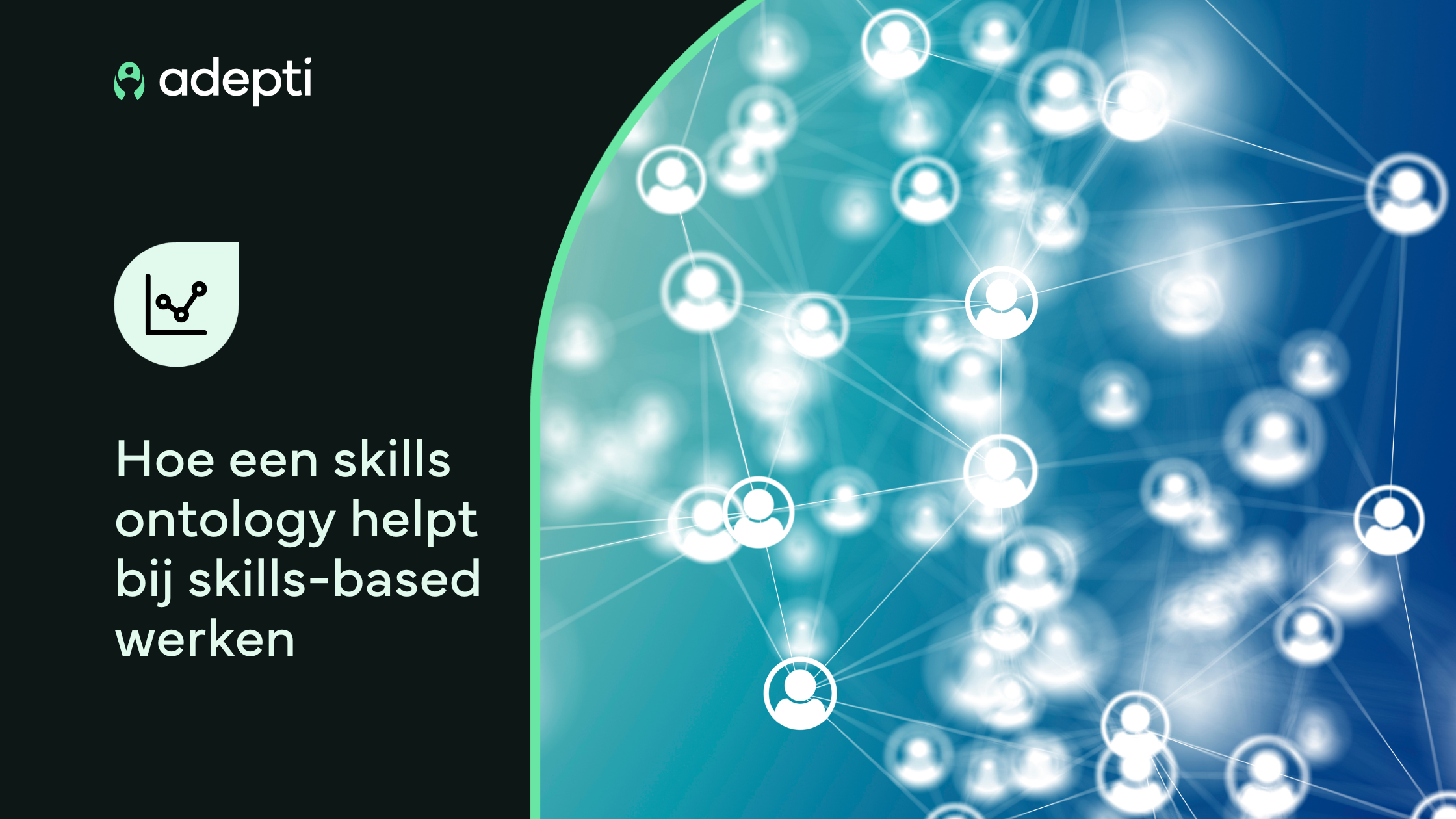Skills management as a strategic lens for HR

The limits of job roles
Every HR manager knows the term. Skills. It sounds modern, essential, almost self-evident. But the moment you ask what do we actually mean by it?, the room often goes quiet. Too often the conversation falls back on job descriptions, competency lists, or training plans. And that’s where the essence gets lost.
The reality is that the labor market doesn’t care about rigid job structures. New roles appear faster than job profiles can be written. Think of AI specialists or data ethicists: barely visible a decade ago, now indispensable. Meanwhile, other roles quietly fade into the background. HR tries to keep up with new profiles, learning programs and recruitment campaigns, but inevitably ends up chasing the past.
What a skills lens reveals
Skills management breaks that cycle. It shifts the focus from jobs to capabilities. And the moment you take that perspective, new possibilities start to emerge.
Maybe your marketer turns out to have strong project management abilities. Or a customer service agent with analytical skills grows into data reporting. By looking at what someone can do instead of what they are, internal mobility becomes more tangible, career development less linear, and talent development more focused on real potential.
Where organizations go wrong
In practice, many organizations get stuck at the starting line. They map skills, sometimes even build an impressive dashboard. And then… not much happens.
The reason is simple: skills management is too often treated as a project. A side initiative within HR, disconnected from actual strategic decision-making. The result? A snapshot that’s outdated within a year. Leaders can say they’ve “done something with skills,” but in reality nothing has changed.
Skills management as a strategic choice
Real impact only happens when skills management becomes a strategic lens. Not something that sits next to your HR strategy, but the lens through which you design that strategy.
That means letting skills inform decisions about workforce planning, investments, and development. It shows where your organization is vulnerable, where opportunities lie, and which skills you need to build now to be ready for tomorrow. It makes you more agile and ensures your learning budgets aren’t guided by gut feeling but by clear, evidence-based needs.
A new dialogue with employees
Skills management also reshapes the relationship between employee and organization. Instead of one-way career paths – “this is your role, these are your duties” – a dialogue opens up. Employees see their own skillset, discover unexpected directions, and feel more ownership of their growth.
For HR, this is invaluable. In a tight labor market where loyalty is never guaranteed, creating that sense of recognition and opportunity is what keeps people engaged. Skills management is not a passing trend; it’s the foundation for sustainable growth.
BLOG
BLOG
Skills-based organizations insights
.png)
6
min read
The role of AI in finding the right internal candidate
.png)
4
min read
From Static to Dynamic: The Necessity of Skill Based Workforce Planning

6
min read
Why HR must take a leading role in the AI strategy
BLOG
BLOG
Skills-based organizations insights

6
min read
10 essential professional skills to develop

6
min read
How to create an employee development plan

5
min read
The 5 main coaching skills every manager needs
BLOG
BLOG
Skills-based organizations insights

5
min read
Hoe een skills ontologie help bij skills-based werken

5
min read
Ontwikkel je upskilling strategie met behulp van AI

5
min read
Oud vs. nieuw: Talent mobiliteit in HR
Skills-based organizations insights
.png)
6
min read
The role of AI in finding the right internal candidate
.png)
4
min read
From Static to Dynamic: The Necessity of Skill Based Workforce Planning

6
min read
Why HR must take a leading role in the AI strategy

4
min read
Career development takes courage to learn

5
min read
Internal mobility: promising, but often misunderstood

4
min read
Skills management as a strategic lens for HR
Meest recente artikelen

5
min read
Hoe een skills ontologie help bij skills-based werken

5
min read
Ontwikkel je upskilling strategie met behulp van AI

5
min read
Oud vs. nieuw: Talent mobiliteit in HR

6
min read
De rol van HR-analytics in skills management
-p-1600.png)
4
min read
De beste platforms voor skills management

5
min read
Hoe HR-directeuren de skills-ontwikkeling van medewerkers kunnen bevorderen
Skills-based organizations insights

20
min read
Comprehensive guide to apply stagility in your HR strategy

15
min read
HR industry report 2025

20
min read
AI-driven talent management

8
min read
Talent Management Systems

10
min read
The evolution of talent development

10
min read
Ready for the future with Upskilling and Reskilling
Meest recente artikelen

3
min read
SLIM-subsidie aanvragen voor jouw bedrijf

10
min read
Klaar voor de toekomst met Upskilling en Reskilling

9
min read
Het pad naar een skill-based organisatie
Skills-based organizations insights
.png)










